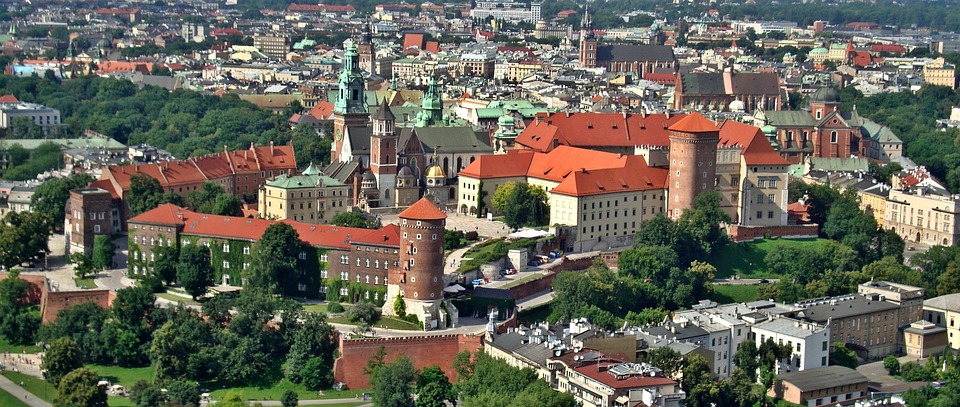1. Ban on Wearing Tracksuits in Certain Areas
In Poland, the informal attire of tracksuits is sometimes frowned upon in specific public settings, particularly in upscale shopping malls, restaurants, and other high-end venues. This cultural norm extends beyond mere dress code; it reflects a broader societal emphasis on propriety and respect for communal spaces. The origins of this norm can be traced to Poland's historical context where formal attire was a symbol of respect and social status. In contemporary Poland, this dress code underscores a preference for maintaining a certain level of decorum in public spaces, aligning with the broader European tradition of differentiating between casual and formal environments. The ban serves as a reminder of the cultural value placed on appearance and the perceived respectability associated with formal attire.
2. Prohibition of Selling Alcohol at Certain Hours
Poland’s laws restricting the sale of alcohol during specific hours, particularly late at night, reflect a concerted effort to balance public safety with individual freedoms. These regulations, which typically prohibit sales after 10 PM or midnight, are designed to mitigate the risks associated with late-night drinking, such as noise disturbances, violence, and accidents. The origins of these laws can be traced back to social and historical concerns about the impact of alcohol on public order and safety. In urban areas, these restrictions are often stricter, influenced by higher incidences of public disturbances and a denser population. In contrast, rural areas may experience more relaxed regulations, reflecting different social dynamics. This regulation highlights Poland’s approach to managing public health and safety through targeted legislative measures.
3. The ‘Pączki Day’ Celebration
Pączki Day, or Tłusty Czwartek (Fat Thursday), is a significant Polish tradition celebrated on the last Thursday before Lent. This day is dedicated to indulgence in pączki, rich doughnuts filled with various sweet fillings, symbolizing the end of the indulgent period before Lent begins. The tradition has historical roots in medieval Europe, where people would use up rich foods in preparation for the austere period of fasting. In Poland, Pączki Day has evolved into a nationwide celebration that not only emphasizes culinary traditions but also serves as a communal event bringing people together. The day is marked by bustling bakeries, street festivals, and a sense of shared cultural heritage. The celebration of Pączki Day underscores the Polish approach to blending food, culture, and religion, highlighting the importance of culinary traditions in national identity.
4. The ‘Żurek’ Tradition During Easter
Żurek, a sour rye soup typically enjoyed during Easter, is a quintessential element of Polish culinary heritage. Made from fermented rye flour, Żurek is traditionally served with sausage, hard-boiled eggs, and occasionally mushrooms, symbolizing the end of Lent and the joy of Easter. The soup’s distinct sour flavor, achieved through fermentation, reflects Poland’s rich tradition of using preserved and fermented foods. Żurek is more than just a dish; it represents the culmination of Lent and is deeply intertwined with Polish Easter celebrations. The soup is often featured in a special Easter Sunday feast, reflecting the importance of food in religious and seasonal observances. The tradition of Żurek underscores the role of culinary practices in preserving cultural and religious identity.
 |
| Gdańsk Street, Poland |
5. The ‘Name Day’ Celebration
In Poland, Name Days (Imieniny) hold a significance that often surpasses that of birthdays. Each day of the year is dedicated to particular names, and individuals with those names celebrate their Name Day with social gatherings, gifts, and well-wishes. This tradition is rooted in the Catholic calendar, where many Name Days correspond to the feast days of saints. The importance of Name Days in Polish culture reflects a deep-seated reverence for personal names and their historical and religious significance. Celebrations often involve hosting parties, receiving special attention from family and friends, and participating in community events. Name Days offer an additional occasion for social bonding and highlight the cultural value placed on personal identity and heritage.
 |
| Diego Delso, CC BY-SA 4.0, via Wikimedia Commons |
6. The ‘Wilga’ Tradition
The arrival of the ‘Wilga,’ or European Golden Oriole (Oriolus oriolus), marks a cherished seasonal event in rural Poland. This vibrant bird, known for its striking yellow and black plumage and melodious call, is heralded as a natural symbol of spring. The Wilga's arrival is eagerly anticipated, as it signifies the end of winter and the onset of warmer, more fertile months. In various rural communities, local festivals and gatherings celebrate this event with a blend of joy and reverence.
The tradition of celebrating the Wilga is deeply rooted in Polish agrarian culture, where the arrival of migratory birds has historically been linked to the rhythms of agricultural life. Farmers and villagers observe the Wilga's migration patterns as an indicator for planting and harvesting. This tradition underscores a broader cultural connection to nature and the cycles of the seasons. It also reflects a nostalgic appreciation for the natural world and its influence on daily life, fostering a sense of continuity and community through shared ecological milestones.
 |
| Kraków, Poland |
7. Restrictions on Changing Names
In Poland, the process of changing one’s name is a complex and highly regulated affair, reflecting the cultural importance of maintaining stable personal identity. The legal framework requires individuals to present compelling reasons for a name change, whether due to personal, familial, or societal considerations. Applicants must navigate a bureaucratic labyrinth involving various authorities and provide substantial documentation to justify their request.
This rigorous process serves multiple purposes. It ensures that name changes are not made impulsively and prevents potential misuse or fraud. The stringent requirements highlight Poland’s emphasis on the significance of names as integral to personal and social identity. The system is designed to protect the integrity of personal records and maintain consistency in legal and administrative documents. This regulation mirrors broader societal values that prioritize stability and continuity over transient personal preferences.
 |
| Matyófolk, CC BY-SA 4.0, via Wikimedia Commons |
8. The ‘Śmigus-Dyngus’ Tradition
Śmigus-Dyngus, or Wet Monday, is a lively and unique Polish Easter tradition celebrated on the Monday following Easter Sunday. Rooted in medieval Slavic customs, this day involves playful water fights, where people douse each other with water in a spirited expression of festivity. The tradition symbolizes purification and the renewal of life, reflecting themes of cleansing and rebirth associated with Easter.
This tradition is not only a fun and engaging activity but also serves as a communal celebration of spring's arrival. Historically, it was believed that getting wet on Śmigus-Dyngus would bring good health and prosperity for the coming year. Today, it is celebrated with enthusiasm across Poland, from small villages to urban centers, embodying the joyful and communal spirit of Polish Easter festivities. The tradition highlights the cultural significance of seasonal celebrations and their role in reinforcing social bonds and collective identity.
9. Restrictions on Naming Pets
In Poland, the naming of pets is governed by specific regulations, particularly when it comes to official documentation. Pet names must adhere to certain standards and are often subject to registration with local authorities. These regulations are part of a broader effort to formalize and standardize pet ownership, ensuring that pets are properly documented and identifiable.
The emphasis on regulating pet names reflects a cultural inclination towards order and accountability in various aspects of life. By formalizing pet names, authorities aim to prevent issues related to pet ownership, such as lost animals or disputes over identity. This practice underscores a commitment to maintaining an organized and regulated approach to pet care, reflecting broader societal values regarding responsibility and management in everyday life.
10. The ‘Niedziela Handlowa’ (Trading Sunday) Regulation
In Poland, the ‘Niedziela Handlowa’ or Trading Sunday regulation restricts commercial activities on most Sundays, with only a few Sundays each year designated as trading days. This law reflects a cultural and societal emphasis on work-life balance and family time. By limiting commercial activities, the regulation aims to provide workers with guaranteed rest and encourage family and leisure activities on Sundays.
The regulation has its roots in Polish and broader European traditions that view Sundays as a day of rest and religious observance. It also highlights contemporary concerns about the impact of consumerism on work-life balance and the importance of preserving time for personal and family life. The Trading Sunday law represents a blend of cultural values and practical considerations, aiming to harmonize economic activity with social well-being and community life.






Comments
Post a Comment